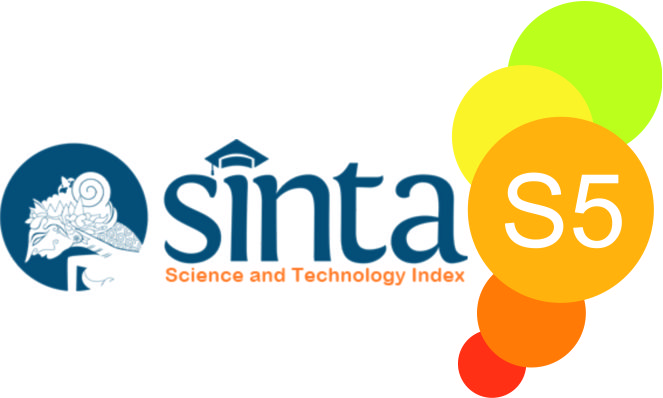PENDEKATAN KONSTRUKTIVIS SOSIAL DALAM PENINGKATAN HASIL BELAJAR IPS DI SD KELAS IV
Abstract
Learners at elementary school age generally have a concept that is rich, but not systematically, not organized and spontaneous. With a skilled supervisor dialogue together, then learners can develop the concepts that are more systematic, logical, and rational. A social constructivist approach stresses the social context in learning that knowledge is constructed and built together with the teacher or friend of the more skilled colleagues. The purpose of this research is to improve or enhance quality (quality) were learning in class by applying the social constructivist approach at grade IV in the primary Christian Advent of Ambon. The method of this research is a type of class action Research with 4 stages, namely planning, implementation, observation and reflection. The results of this research that is happening gradual classical on the learners of the cycle I meeting 1 to 2 meetings amounted to 6.6% of the cycle I of the meeting 1 of 59% to 65.6% in meeting 2. While the ketuntasan of classical learners on cycle II increased to 6.8% in cycle II meeting 1 of 77.2% to 84%. Cycle II whole learners, prepared with a value above the KKM i.e. 15 learners or 100% complete
Downloads
References
Akbar, S, & Z, Luluk, F. 2009. Prosedur Penyusunan Laporan dan Artikel: Hasil Penelitian Tindakan Kelas.Yogyakarta: Cipta Media Aksara.
Arifin, Ilham. Penerapan Pendekatan Konstruktivisme Dengan Metode Brainstorming (Curah Pendapat) Untuk Meningkatkan Hasil Belajar dan Aktivitas Belajar Kimia Peserta Didik. Diss. UNIMED, 2017.
Fitriani, Vivi, Yuni Ahda, and Lufri Lufri. "Pengembangan Media Pembelajaran Interaktif Berorientasi Konstruktivisme Pada Materi Gastrulasi Dalam Mata Kuliah Perkembangan Hewan." Jurnal Kolaboratif Vol. 2 No.2 (2015).
Fosnot (1996).Enquiring Teachers. Enquiring Learners. A constructivist Approach
for Teaching. New York: Columbia University
Jasumayanti, Eka, and Suhardi Marli. "Korelasi antara pendekatan konstruktivisme dengan hasil belajar peserta didik pada pembelajaran IPS SD." Jurnal Pendidikan dan Pembelajaran Vol. 2 No.3 (2013).
Kemmis, S., & McTaggart, R. (Eds.). (1990). The Action Research Reader. Victoria: Deakin University.
Newman, F. et al.(1993).Lev Vygotsky,Rrevolutionary Scientist.London and New
York:Routledge
Santrock, J.W. 2009. Psikologi Pendidikan. Jakarta : Salemba Humanika.
Sapriya. 2009. Pendidikan IPS. Bandung : Remaja Rosdakarya.
Sumaatmadja, Nursid. 2006. Metodologi Pengajaran ilmu Pengetahuan Sosial (IPS). Bandung: Alumni.
Sumarno, Alim (2011) (http://blog.elearning.unesa.ac.id/alim-sumarno/hubungan-konstruktivismedengan-pendidikan),
Supardan, Dadang. 2015. Pembelajaran Ilmu Pengetahuan Sosial (Perspektif Filosofi dan Kurikulum). Jakarta: Bumi Aksara.
Susanto, Ahmad. 2014. Pengembangan Pembelajaran IPS di SD. Jakarta: Prenatamedia Group.
Winataputra, Udin. 2003. Strategi Belajar Mengajar. Pusat Penerbitan Universitas Terbuka. Jakarta.









 This work is licensed under
This work is licensed under 